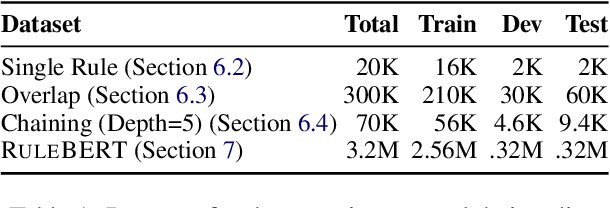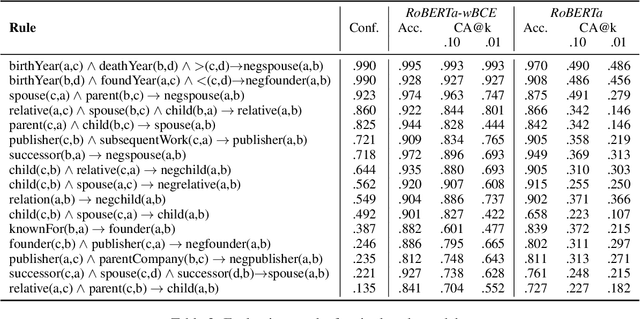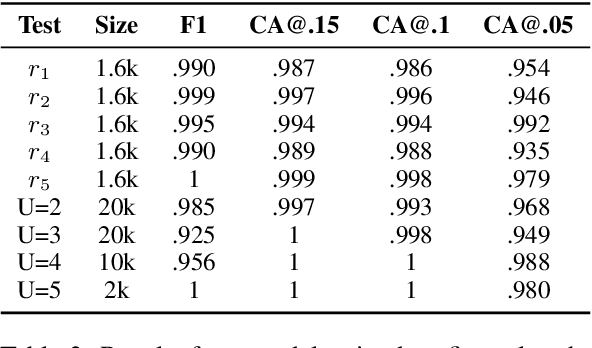RuleBert: Teaching Soft Rules to Pre-trained Language Models
Paper and Code
Sep 24, 2021



While pre-trained language models (PLMs) are the go-to solution to tackle many natural language processing problems, they are still very limited in their ability to capture and to use common-sense knowledge. In fact, even if information is available in the form of approximate (soft) logical rules, it is not clear how to transfer it to a PLM in order to improve its performance for deductive reasoning tasks. Here, we aim to bridge this gap by teaching PLMs how to reason with soft Horn rules. We introduce a classification task where, given facts and soft rules, the PLM should return a prediction with a probability for a given hypothesis. We release the first dataset for this task, and we propose a revised loss function that enables the PLM to learn how to predict precise probabilities for the task. Our evaluation results show that the resulting fine-tuned models achieve very high performance, even on logical rules that were unseen at training. Moreover, we demonstrate that logical notions expressed by the rules are transferred to the fine-tuned model, yielding state-of-the-art results on external datasets.
 Add to Chrome
Add to Chrome Add to Firefox
Add to Firefox Add to Edge
Add to Edge